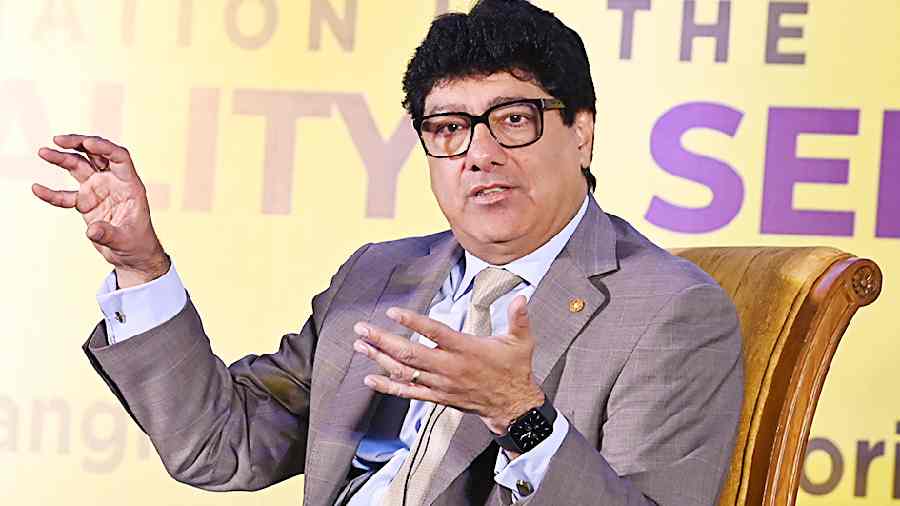Domestic travel has been the cornerstone of the tourism sector in the wake of Covid, a leading hotelier said in Kolkata on Tuesday.
“There is a robust growth in demand. This is being led by domestic tourism. Foreign travel, the arrivals, are still at 60 per cent of what they used to be,” said Puneet Chhatwal, managing director and CEO of The Indian Hotels Company Limited, which owns the Taj group.
“Just imagine 1.4 billion people (India’s population). If only one-third of it was relevant, it would be a huge number. If you just imagine the number of people who were not travelling on their own, not driving on their own but started doing so after Covid. If that was just 10 million people who did three to five additional room nights in a year, that means around 50 million incremental room nights. There is a big opportunity coming from the domestic sector. There is a permanent shift in consumer behaviour,” said Chhatwal.
He delivered the Sir Jehangir Ghandy Memorial Oration on “Transformation in the Hospitality and Services Sector” at the Calcutta Management Summit, the annual flagship programme of the Calcutta Management Association, held in association with The Telegraph at a city hotel — also owned by the IHCL — off the EM Bypass.
Limited supply and a rise in demand meant increased profitability for the sector, said Chhatwal.
“There are not so many hotels that got added as they did between 2010 and 2015. So, supply is limited and demand is increasing. So, obviously this gives you an ability to charge. If you have the ability to charge more, the profitability increases. If the profitability increases, the investment in the sector increases,” he said.
He attributed the restrained supply to various factors.
“The global financial crisis of 2008, the terror attacks of 26/11, a lot of builders getting into the hotel segment, which was not their core business,” he said.
In October last year, The Telegraph had reported on a robust growth in the hospitality sector in Kolkata.
People leading star hotels in the city had then attributed the growth — a rise in room bookings, orders served at restaurants and banquet advance bookings that suggested a bumper wedding season — to a surge in domestic demand.
Chhatwal spoke in the same vein.
He lauded the big fat Indian wedding for sustaining hotels during crisis. “A very important pillar for India... has been the wedding segment.... Those occasions were restricted to 200 people. But our people divided the celebrations into five days and still called 1,000 people,” he said.
